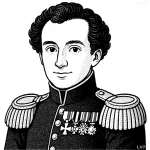“Politics is war without bloodshed while war is politics with bloodshed.”

- December 26, 1893 – September 9, 1976
- Born in China
- Politician, thinker
table of contents
Quote
“Politics is war without bloodshed while war is politics with bloodshed.”
Explanation
This quote by Mao Zedong highlights the inseparable relationship between politics and war, suggesting that they are essentially two sides of the same coin. Mao believed that political struggle and military conflict are both forms of contending for power and are driven by the same underlying goals. Politics, in this sense, is the means of pursuing one’s agenda through diplomacy, negotiation, and strategic influence—without resorting to violence or war. However, when political solutions fail or are insufficient, war becomes the extension of politics, where the struggle for power is decided by force, resulting in bloodshed.
For Mao, this concept reflected his revolutionary ideology, which emphasized the necessity of armed struggle in the context of class conflict. He argued that in societies where political opposition to the ruling class or regime was strong, but where traditional forms of politics (like negotiation or peaceful protest) were ineffective, armed resistance was an inevitable response. In this way, war was not just about combat but was seen as the ultimate form of political action, a way to forcefully resolve political contradictions when diplomacy or dialogue proved impossible. His experiences with the Chinese Civil War and the Second Sino-Japanese War shaped this view, where political struggle often led to military conflict.
In contemporary society, this quote offers insight into the ongoing relationship between politics and violence in global conflicts. It underscores the idea that political power is often contested through force in situations where negotiation fails, and it serves as a reminder of the human cost of conflict. While politics today largely operates in more diplomatic, non-violent ways, the quote speaks to the persistence of military intervention in global politics. It also encourages reflection on how nations and leaders might address political disputes peacefully, to avoid the escalation of conflict into full-scale war.
Would you like to share your impressions or related stories about this quote in the comments section?



